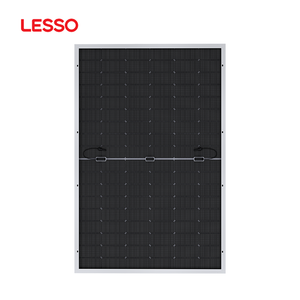Understanding Renewable Form Energy
Renewable form energy refers to energy derived from natural sources that are replenished constantly. This type of energy is crucial in the transition towards sustainable living, helping to reduce dependency on fossil fuels. The diverse sources of renewable energy include solar, wind, hydro, geothermal, and biomass, each contributing to a cleaner and greener environment.
Types of Renewable Form Energy
- Solar Energy: Captured through solar panels, utilizing sunlight to generate electricity or heat.
- Wind Energy: Produced by harnessing wind currents to turn turbines, generating electrical power.
- Hydroelectric Energy: Generated by utilizing the flow of water, particularly from rivers or dams, to produce electricity.
- Biomass Energy: Created from organic materials such as plant and animal waste, which can be used for heating or power generation.
- Geothermal Energy: Derived from the heat stored beneath the earth's surface, used for electricity and heating purposes.
Applications of Renewable Form Energy
Renewable form energy has revolutionized various sectors through its diverse applications, significantly impacting both industrial and residential sectors.
- Electricity Generation: Renewable energy sources significantly contribute to electricity grids, reducing reliance on fossil fuels.
- Heating Solutions: Solar thermal panels are popular for heating water in residential and commercial settings.
- Transportation: Electric vehicles powered by renewable energy are becoming more prevalent, promoting cleaner, green transport.
- Agricultural Practices: Farmers utilize renewable energy for irrigation, heating greenhouses, and running equipment, optimizing productivity sustainably.
- Energy Independence: By harnessing local renewable resources, nations can reduce their dependence on imported fuels.
Features and Benefits of Renewable Form Energy
The shift toward renewable form energy brings substantial benefits and distinct features that set it apart from traditional energy sources:
- Sustainability: Renewable energy sources are infinite in nature, providing a long-term solution to energy needs.
- Environmental Impact: Utilizing renewable energy helps mitigate pollution and decrease greenhouse gas emissions.
- Energy Security: Investing in renewable resources enhances energy security, reducing vulnerability to international fuel price fluctuations.
- Job Creation: The renewable energy industry creates numerous job opportunities in manufacturing, installation, and maintenance.
- Cost-Effectiveness: Over time, the operational costs associated with renewable energy facilities decline, yielding economic savings for consumers.















































